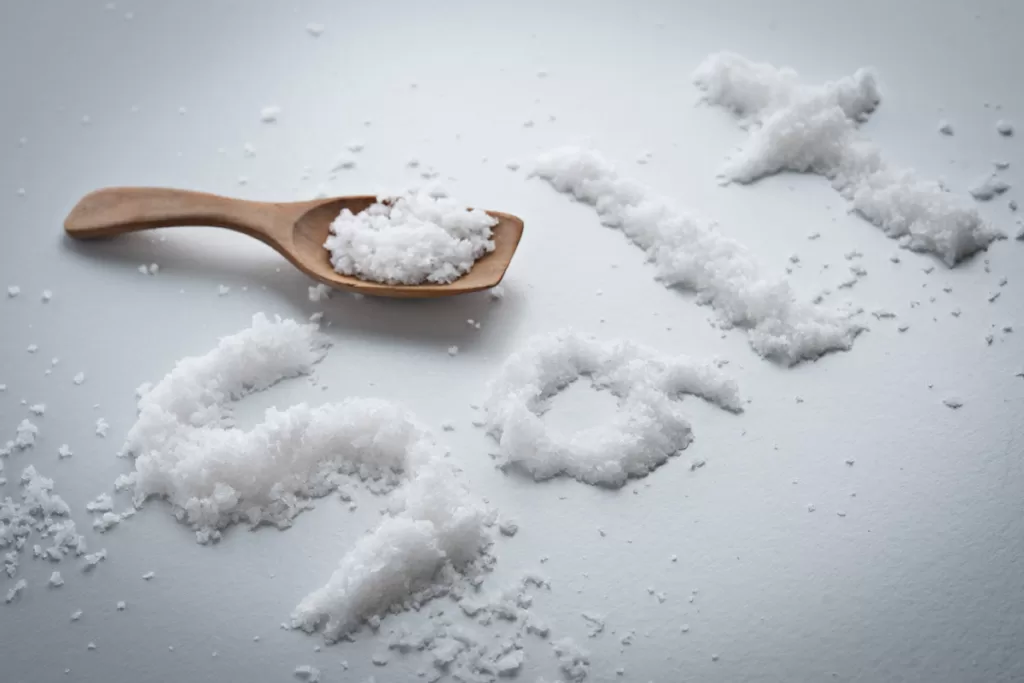Sodium imbalance occurs when there is too much or too little sodium in the blood. Sodium is a vital electrolyte that plays a critical role in maintaining proper fluid balance and nerve and muscle function in the body. However, an imbalance of sodium levels in the body can lead to serious health consequences.
SThe normal range of sodium in the blood is between 135-145 millimoles per liter (mmol/L). A sodium level above 145 mmol/L is considered hypernatremia, whereas a sodium level below 135 mmol/L is considered hyponatremia.
Hypernatremia occurs when there is an excess amount of sodium in the blood. This can occur due to various factors, including dehydration, excessive sweating, and kidney disease. Symptoms of hypernatremia include thirst, restlessness, confusion, muscle weakness, and seizures. If left untreated, hypernatremia can lead to brain swelling, coma, and death.
Hyponatremia, on the other hand, occurs when there is too little sodium in the blood. This can be caused by a variety of factors, including excessive fluid intake, certain medications, and kidney or liver disease. Symptoms of hyponatremia include nausea, headache, confusion, seizures, and coma. Severe hyponatremia can lead to brain swelling, which can be life-threatening.
In addition to the above symptoms, sodium imbalance can also lead to other health problems. For example, low sodium levels can cause bone density loss and increase the risk of falls in older adults. High sodium levels can increase blood pressure, which can lead to heart disease, stroke, and kidney disease.

To prevent sodium imbalance, it is important to maintain a healthy diet and stay hydrated. A balanced diet rich in fruits and vegetables can help regulate sodium levels in the body. Additionally, drinking water throughout the day can help prevent dehydration and maintain proper fluid balance.
Studies state that sodium imbalance in the body can lead to serious health consequences. Hypernatremia and hyponatremia can both cause a range of symptoms, and if left untreated, can lead to life-threatening complications. It is important to maintain proper sodium balance through a healthy diet and hydration to prevent these health problems.
Hypernatremia and its causes
Hypernatremia is a medical condition characterized by an elevated concentration of sodium in the blood. This condition occurs when there is an imbalance between sodium intake and the amount of water in the body, leading to a dehydration effect. Hypernatremia can lead to serious complications and requires prompt medical attention.
Sodium is an electrolyte that is essential for various physiological functions, including fluid balance, nerve transmission, and muscle function. An excess sodium concentration in the blood, above 145 mmol/L, is considered hypernatremia.
Causes of Hypernatremia
Hypernatremia can occur due to a variety of reasons. The following are the common causes of hypernatremia:
Inadequate water intake:
One of the most common causes of hypernatremia is inadequate water intake, which can occur due to reduced thirst sensation, decreased access to water, or physical inability to drink water, such as in unconscious or immobilized individuals. This can lead to dehydration, and sodium concentration in the blood increases.
Excessive sodium intake:
Another cause of hypernatremia is the consumption of a high-sodium diet or excess sodium supplements. This can happen in individuals with salt cravings or those who consume high-sodium foods frequently.
Water loss:
Hypernatremia can also result from excessive loss of water from the body, such as in conditions of diarrhea, vomiting, excessive sweating, or fever.
Kidney diseases:
Chronic kidney disease or acute kidney injury can cause hypernatremia due to impaired water conservation by the kidneys.
Diabetes insipidus:
Diabetes insipidus is a condition characterized by reduced secretion of antidiuretic hormone (ADH) or insensitivity of the kidneys to ADH, leading to excessive water loss from the body and an increase in sodium concentration.
Medications:
Certain medications such as diuretics, steroids, and some antipsychotics can cause hypernatremia by inducing excessive water loss.
Symptoms of Hypernatremia
The symptoms of hypernatremia can vary depending on the degree and rate of sodium elevation. Mild hypernatremia may not present any symptoms, whereas severe hypernatremia can cause the following symptoms:
- Thirst: One of the earliest symptoms of hypernatremia is excessive thirst.
- Dry mouth and skin: The loss of water from the body leads to dryness of the mouth and skin.
- Restlessness and irritability: Hypernatremia can cause agitation, confusion, and irritability.
- Muscle weakness and cramps: An increased concentration of sodium in the blood can lead to muscle weakness and cramps.
- Seizures: Severe hypernatremia can lead to seizures.
- Coma: In severe cases, hypernatremia can cause a coma or even death.
Diagnosis of Hypernatremia
Hypernatremia is diagnosed by a blood test that measures the sodium concentration in the blood. Additionally, other tests such as urine tests, blood osmolality tests, and kidney function tests may be ordered to determine the underlying cause of hypernatremia.
Treatment of Hypernatremia
The treatment of hypernatremia depends on the severity and underlying cause of the condition. The primary goal of treatment is to correct the fluid imbalance and reduce the concentration of sodium in the blood. The following treatments may be employed:
- Fluid replacement: The administration of intravenous fluids such as normal saline or dextrose in water can help restore fluid balance and reduce the concentration of sodium in the blood.
- Correction of underlying causes: Treating the underlying cause
Hyponatremia and its causes
Hyponatremia is a medical condition characterized by a low concentration of sodium in the blood. Sodium is an important electrolyte that plays a crucial role in maintaining fluid balance in the body, nerve transmission, and muscle function.
A low level of sodium in the blood can lead to a wide range of symptoms and complications. A sodium concentration below 135 mmol/L is considered hyponatremia. Severe hyponatremia can be a life-threatening condition and requires immediate medical attention.
Causes of Hyponatremia
Hyponatremia can be caused by a variety of factors. The following are the most common causes of hyponatremia:
Excessive water intake:
Drinking too much water or other fluids can dilute the sodium concentration in the blood and lead to hyponatremia. This can occur in individuals with a compulsive tendency to drink excessive fluids, such as those with psychogenic polydipsia, or in athletes who overhydrate.
Medications:
Certain medications such as diuretics, antidepressants, antipsychotics, and some pain medications can lead to hyponatremia by increasing water retention in the body.
Kidney diseases:
Chronic kidney disease, nephrotic syndrome, or acute kidney injury can impair the kidney’s ability to regulate sodium balance in the body, leading to hyponatremia.
Hormonal imbalances:
Certain hormonal imbalances, such as hypothyroidism, adrenal insufficiency, and syndrome of inappropriate antidiuretic hormone secretion (SIADH), can cause hyponatremia by altering the regulation of water and sodium balance in the body.
Liver disease:
Advanced liver disease can lead to hyponatremia due to impaired liver function, leading to the accumulation of water and decreased sodium excretion.
Heart failure:
Chronic heart failure can lead to hyponatremia due to decreased cardiac output and reduced blood flow to the kidneys, leading to impaired sodium excretion.
Symptoms of Hyponatremia
The symptoms of hyponatremia can vary depending on the degree and rate of sodium depletion. Mild hyponatremia may not present any symptoms, whereas severe hyponatremia can cause the following symptoms:
- Nausea and vomiting: Low sodium levels can cause nausea and vomiting.
- Headache: Hyponatremia can cause a headache, which is usually mild.
- Confusion and disorientation: Low sodium levels can cause confusion, disorientation, and even hallucinations.
- Seizures: Severe hyponatremia can lead to seizures.
- Coma: In severe cases, hyponatremia can cause a coma or even death.
Diagnosis of Hyponatremia
Hyponatremia is diagnosed by a blood test that measures the sodium concentration in the blood. Other tests, such as urine tests, blood osmolality tests, and kidney function tests, may be ordered to determine the underlying cause of hyponatremia.
Treatment of Hyponatremia
The treatment of hyponatremia depends on the severity and underlying cause of the condition. The primary goal of treatment is to correct the fluid imbalance and increase the concentration of sodium in the blood. The following treatments may be employed:
- Fluid restriction: The first step in treating hyponatremia is to restrict fluid intake to prevent further dilution of sodium levels in the blood.
- Sodium replacement: In cases of severe hyponatremia or if the patient is experiencing symptoms, sodium replacement through
Home remedies and precautions to avoid sodium imbalance in your body

Maintaining a healthy balance of sodium in the body is important for overall health and well-being. While severe sodium imbalances should be treated by a medical professional, there are several home remedies and precautions that can help maintain a healthy balance of sodium in the body.
- Increase water intake: Drinking an adequate amount of water can help maintain a healthy balance of sodium in the body. However, excessive water intake should be avoided, as it can lead to hyponatremia.
- Reduce salt intake: Consuming too much salt can lead to hypernatremia, so it is important to reduce salt intake in the diet. Instead of adding salt to meals, try using other herbs and spices to enhance flavor.
- Increase potassium intake: Consuming foods high in potassium, such as bananas, avocados, spinach, and sweet potatoes, can help maintain a healthy balance of sodium in the body.
- Exercise regularly: Regular exercise can help maintain a healthy balance of sodium in the body. However, excessive exercise or sweating can lead to sodium depletion, so it is important to stay hydrated and replenish lost electrolytes.
- Avoid processed foods: Processed foods often contain high amounts of sodium, so it is important to limit consumption of processed foods and opt for fresh, whole foods instead.
- Monitor medications: Certain medications, such as diuretics and some pain medications, can lead to sodium imbalances. It is essential to monitor medications and discuss any concerns with a healthcare provider.
- Practice stress management: Chronic stress can lead to hormonal imbalances, which can affect sodium balance in the body. Practicing stress-management techniques, such as meditation and deep breathing, can help maintain a healthy balance of sodium in the body.
- Get regular check-ups: Regular check-ups with a healthcare provider can help monitor sodium levels and identify any underlying medical conditions that may affect sodium balance in the body.
Conclusion
Maintaining a healthy balance of sodium in the body is important for overall health and well-being. Simple home remedies, such as increasing water intake, reducing salt intake, and consuming potassium-rich foods, can help maintain a healthy balance of sodium in the body. Additionally, practicing stress management and getting regular check-ups can help identify any underlying medical conditions that may affect sodium balance in the body.
Disclaimer: This information is for educational purposes only, and no medical advice should be inferred from it. Before changing your diet or adding supplements, please talk to your doctor.
The author’s views are his or her own. The facts and opinions in the article have been taken from various articles and commentaries available in the online media and Eastside Writers does not take any responsibility or obligation for them.
Note: Contact our Writers at www.eastsidewriters.com for writing Blogs/Articles on any niche. We have experts in various domains from Technology to Finance and from Spirituality to Lifestyle and Entertainment.







Pingback: Beyond Water Retention: Uncovering the Surprising Truths of Diuretics - Eastside Writers